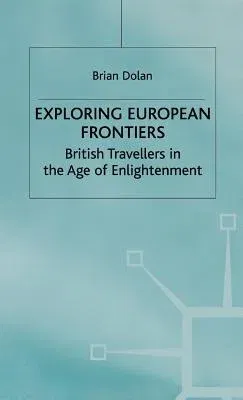B Dolan
(Author)Exploring European Frontiers: British Travellers in the Age of Enlightenment (2000)Hardcover - 2000, 2 March 2000

Qty
1
Turbo
Ships in 2 - 3 days
In Stock
Free Delivery
Cash on Delivery
15 Days
Free Returns
Secure Checkout

Part of Series
British Travellers in the Age of Enlightenment
Print Length
237 pages
Language
English
Publisher
Palgrave MacMillan
Date Published
2 Mar 2000
ISBN-10
0333789873
ISBN-13
9780333789872
Description
Product Details
Author:
Book Edition:
2000
Book Format:
Hardcover
Country of Origin:
US
Date Published:
2 March 2000
Dimensions:
21.59 x
13.97 x
1.75 cm
ISBN-10:
0333789873
ISBN-13:
9780333789872
Language:
English
Location:
London
Pages:
237
Publisher:
Weight:
462.66 gm